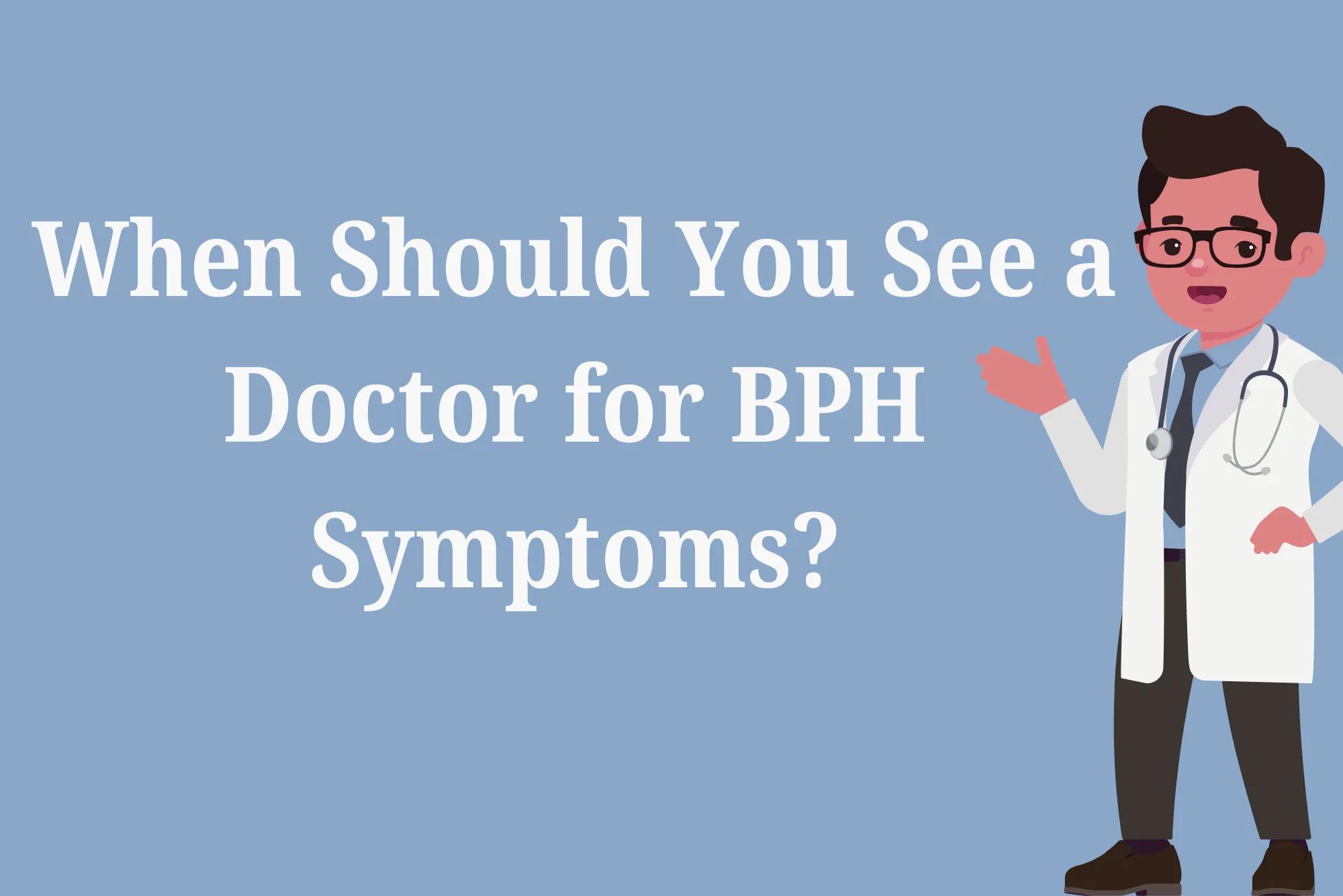Benign Prostatic Hyperplasia (BPH) is a common condition affecting men as they age. It occurs when the prostate gland enlarges, leading to urinary problems that can disrupt daily life. While BPH is not cancerous, it can cause discomfort and complications if left untreated. Understanding when to seek medical attention is crucial for effective management and improved quality of life.
Understanding BPH and Its Symptoms
BPH develops gradually and presents a range of urinary symptoms. The severity of symptoms varies, but common issues include difficulty starting urination, weak urine flow, frequent nighttime urination, and the feeling of incomplete bladder emptying. In some cases, symptoms remain mild and manageable, but for others, they can lead to significant health concerns.
When to Seek Medical Attention
Persistent or Worsening Symptoms
If urinary difficulties become persistent or worsen over time, consulting a healthcare professional is necessary. Mild symptoms may initially seem manageable, but untreated BPH can lead to severe complications, including bladder damage and infections.
Frequent Nighttime Urination
Nocturia, or excessive nighttime urination, disrupts sleep patterns and affects overall well-being. If waking up multiple times during the night to urinate becomes a regular occurrence, it is a sign that medical evaluation is needed.
Difficulty Urinating or Weak Stream
A weak urine stream or difficulty initiating urination may indicate progressive prostate enlargement. Seeking medical advice can help determine the severity of the condition and appropriate treatment options.
Sudden Inability to Urinate
Acute urinary retention, where urination becomes completely blocked, is a medical emergency. It can cause severe pain and requires immediate medical intervention to prevent complications such as kidney damage.
Recognizing Hyperplasia Symptoms
Enlarged prostate symptoms often overlap with other urinary tract issues, making professional diagnosis essential. Some common hyperplasia symptoms include urinary urgency, frequent urination, and difficulty controlling the bladder. If these symptoms interfere with daily life, seeking medical guidance ensures timely intervention and appropriate management strategies.
BPH Signs and Symptoms That Require Urgent Care
In some cases, BPH symptoms can indicate serious complications. If blood appears in the urine, severe pain occurs in the lower abdomen, or there is an inability to urinate, immediate medical attention is required. These symptoms may suggest infection, bladder stones, or even kidney damage. Understanding BPH signs and symptoms can help individuals recognize when urgent medical care is necessary.
Available Treatment Options
Lifestyle Changes
For mild BPH cases, lifestyle modifications such as reducing caffeine and alcohol intake, practicing bladder training, and staying physically active can help manage symptoms effectively.
Medications
Doctors may prescribe alpha-blockers to relax prostate muscles or 5-alpha reductase inhibitors to reduce gland size. These medications help alleviate urinary symptoms and improve flow.
Minimally Invasive Procedures
For moderate to severe cases, procedures such as transurethral resection of the prostate (TURP) or laser therapy may be recommended. These treatments help remove excess prostate tissue and relieve symptoms.
Surgical Intervention
In extreme cases, surgery may be necessary to remove part of the prostate. This option is typically reserved for individuals who do not respond to other treatments.
Importance of Regular Medical Checkups
Routine checkups help monitor prostate health and detect issues early. Even if symptoms are mild, regular consultations with a healthcare provider can prevent complications and ensure optimal management of BPH.
For more in-depth health-related information, visit Sharp Inner to explore expert insights on wellness, lifestyle, and medical advancements.




